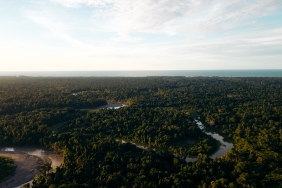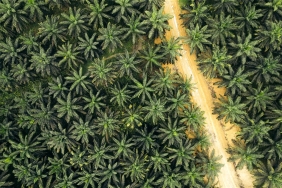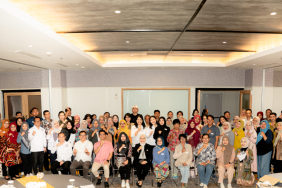ACHIEVING FOLU NET SINK 2030: DISTRICT STRATEGIES FOR REDUCING EMISSIONS AND FUNDING
In early August, WWF Indonesia in collaboration with the General Science Fund (DIPI - Dana Ilmu Pengetahuan Umum) held a workshop to facilitate various stakeholders in exploring the implementation of FOLU Net Sink in the Region. Together in the event, the Climate and Society Foundation (YCS) presented the results of its studies on optimizing FOLU in Central Kalimantan and West Kalimantan, followed by a discussion session. The FOLU Net Sink itself is a key indicator to assess the ability of the Forest and Other Land Use sectors for Indonesia to achieve the zero emission target by 2060. Indonesia has set the second Nationally Determined Contributions (NDC) with a GHG emission reduction target of 31.89% independently and 43.20% with international support. To support the achievement of the FOLU Net Sink 2030, the government has formulated and prepared a monitoring strategy related to 12 Operational Plans (RO - Rencana Operasional) that will be integrated into the Regional Medium-Term and Long-Term Development Plans.

Based on the discussion process during the event, FoLU Net Sink work plan and provincial potential in Sintang, West Kalimantan, and Katingan, Central Kalimantan show advancements in peat forest area change and mineral utilization. Both provinces showed improvement in developing conservation areas and their commitment to FoLU Net Sink 2030. Then, an initial identification of RO implementation in districts or cities in East Kalimantan was conducted, namely Kutai Kartanegara district which is the only district that has largely implemented all 12 ROs. It is hoped that the identification carried out in East Kutai Regency can provide a broad and systematic approach to achieving climate change targets in Indonesia.
Utilization of Financial Support
Financial support for achieving the 2030 FOLU Net Sink target comes from various sources, including Transfer Funds from the State Budget (APBN - Anggaran Pendapatan dan Belanja Negara) such as Revenue Sharing Fund (DBH - Dana Bagi Hasil), Village Fund (DD - Dana Desa ), and Special Allocation Fund (DAK - Dana Alokasi Khusus). DBH tends to be allocated for forest and land rehabilitation activities. At the same time, DD focuses on natural resource sustainability in rural areas, and DAK is used for critical land management and community development around forestry. In addition to conventional funding, innovative finance such as Carbon Pricing, Biodiversity Credits, and Green Bonds are also important to achieve Indonesia's zero-emission goal by addressing various actions to mitigate and adapt to climate change to achieve FOLU Net Sink 2030.





